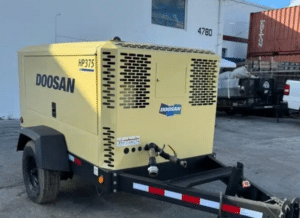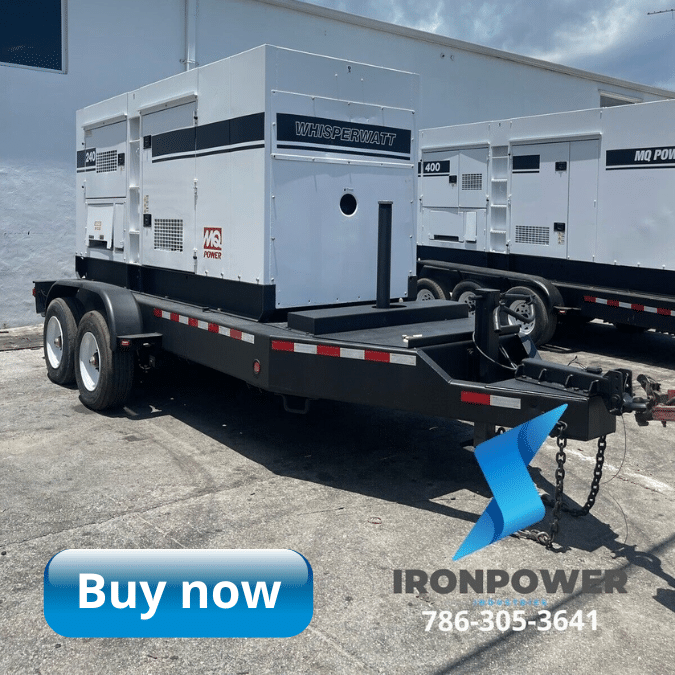
Congratulations on your new generator! To ensure it provides reliable power when you need it, follow these guidelines to protect your investment:
1. Understand Regular Maintenance:
Tip: Familiarize yourself with the manufacturer’s maintenance schedule in the user manual. Regular maintenance tasks, such as oil changes and filter replacements, are vital for long-term performance. For example, you can find your model’s operating manual here:
https://www.multiquip.com/multiquip/productliterature.htm
2. Fuel Quality Matters:
Tip: Use clean and high-quality fuel to prevent fuel system issues. Regularly check and ensure that the fuel meets the recommended specifications.
3. Keep an Eye on Coolant and Temperature:
Tip: Regularly check coolant levels and monitor the generator’s temperature. Overheating can lead to significant issues, so address any cooling system problems promptly.
4. Battery Health is Crucial:
Tip: Check and maintain the generator’s battery. Ensure it’s properly charged, and replace it if needed. A healthy battery is essential for reliable starts.
5. Learn the Basics of Electrical Components:
Tip: Familiarize yourself with the generator’s electrical components, including the voltage regulator and controller. Regularly inspect wiring and connections to avoid electrical system failures.
6. Guard Against Overloading:
Tip: Respect the generator’s rated capacity. Avoid overloading, as this can lead to accelerated wear and potential damage to critical components.
7. Protect Against Environmental Factors:
Tip: If your generator is outdoors, shield it from harsh weather conditions. Regularly clean the unit and apply protective coatings to prevent corrosion.
8. Address Wear and Tear Early:
Tip: Keep an eye out for signs of wear and tear, such as unusual sounds or vibrations. Address these issues promptly to prevent further damage.
9. Educate Operators on Proper Usage:
Tip: Train operators on how to use the generator correctly. Avoid improper usage that could lead to overheating or other issues.
10. Stay Informed About Fuel System Health:
Tip: Regularly inspect the fuel system components, including filters and injectors. Replace them as recommended to prevent fuel-related problems.
11. Utilize Electronic Controls Effectively:
Tip: Understand the basics of the generator’s electronic control unit (ECU). Regularly update firmware and conduct thorough checks to prevent electronic-related failures.
12. Guard Against Wet Stacking:
Tip: Be aware of “wet stacking,” a condition where unburned fuel accumulates in the exhaust system. It can occur at low loads. Regularly operate the generator at or near its rated capacity to prevent this issue.
13. Invest in Quality:
Tip: Purchase high-quality fuel, parts, and accessories. Quality inputs contribute to the overall reliability and longevity of your generator.
https://www.multiquip.com/multiquip/order-parts.htm
14. Adhere to Manufacturer Recommendations:
Tip: Follow the manufacturer’s guidelines for usage, maintenance, and troubleshooting. These recommendations are designed to optimize the performance and lifespan of your generator.
https://www.multiquip.com/multiquip/productliterature.htm
15. Safety First:
Tip: Prioritize safety. Familiarize yourself with safety procedures outlined in the user manual. Keep the generator in a well-ventilated area, away from flammable materials, and install carbon monoxide detectors in enclosed spaces.
16. When to Consult an Electrician:
Tip: An electrician may be needed in the following situations:
Connection to Home Electrical System: If you plan to connect your generator to your home’s electrical system, consult an electrician. They’ll ensure proper installation, including the use of a transfer switch to prevent backfeeding.
Electrical Troubleshooting: If you experience electrical issues with the generator, such as irregular voltage output or frequent circuit breaker trips, seek the expertise of an electrician to diagnose and address the problem.
Load Analysis: If you’re unsure about the electrical load your generator can handle, an electrician can perform a load analysis to ensure you’re operating within safe limits.
17. Routine Inspections are Key:
Tip: Schedule regular inspections of your generator. This proactive approach allows you to identify and address potential issues before they escalate.
By incorporating these tips, including a focus on safety, knowing when to involve an electrician, and conducting routine inspections, into your generator maintenance routine, you’ll maximize its lifespan and ensure a dependable power source when you need it most. Remember, a well-maintained generator is a reliable investment.






